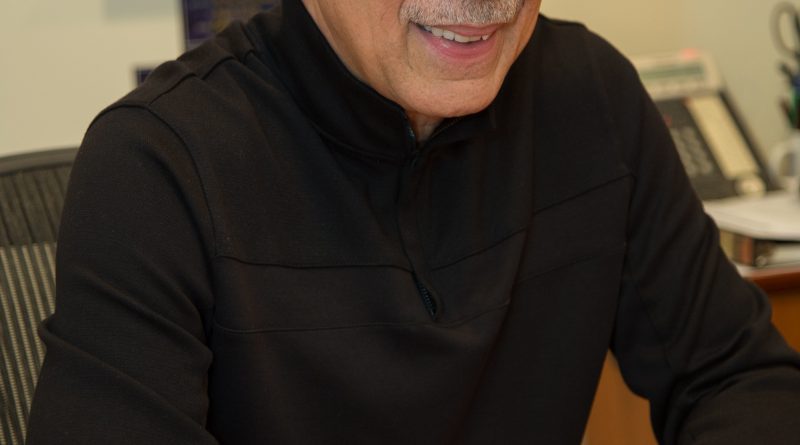A Conversation with Reverend Dr. Marc Rivera, Pastor of Primitive Christian Church
April 2017
Reverend Dr. Marc Rivera is the Pastor of Primitive Christian Church
Reverend Dr. Marc Rivera is the Pastor of Primitive Christian Church (La Iglesia Cristiana Primitiva), which has served the Lower East Side community for 60 years. Reverend Rivera recently joined NYCHA Chair Shola Olatoye’s new Faith Leaders Steering Committee. Though born in Puerto Rico, he has lived on the Lower East Side most of his life, including in Smith Houses with his family for about six years. He once worked on Wall Street at IBM, but left to join the church full time, and has been a member for 40 years. Many members of his congregation reside in NYCHA developments.
What is your role as a member of the committee?
Although I am Latino and the constituency that I represent is mainly Latino, my concern is not only for Latinos, it’s also to make sure that the poor, disenfranchised, and marginalized are served to the best of our ability. Social justice issues—housing, immigration, poverty, education, care of seniors—have always been a priority for this church. I also want to help the public perception of NYCHA, which always tends to the negative. How can we address that and bring the truth to the congregation? I speak to a group of people every Sunday; how can I let them know that whatever you’re hearing in the media may not be true.
Why did you become involved with the Faith Leaders Committee?
This group of clergy leaders wants to bring in the voices of our communities to open discussions about NYCHA—and hopefully we’ll be able to move NYCHA forward. No one has the pulse of the community more, in my opinion, than the faith community—not just churches, but synagogues, temples, and mosques. We interact with our communities on a daily basis; we hear their concerns, worries, and their celebrations. Now, that doesn’t mean that we’re going to change the agenda or the goals or the direction of NYCHA, but we’ll certainly bring a fresh insight to the conversation, which I think is key. And we’re able to bring information back to our constituencies.
What did you think of the first meeting?
For me it was a breath of fresh air because I was expecting a cold, bureaucratic, agenda-driven discussion, and yet it turned out to be a dialogue, a conversation. I sensed genuine concern for the tenants of NYCHA and how NYCHA is perceived through the media. What I saw in the first meeting was open and genuine discussion of the reality of NYCHA. I think this type of communication is critical. I don’t always like the truth, but it helps provide context and then you’ll be able to know how to move forward. That’s why I think the communications piece is critical, and it has to be a dialogue, not one way down with those in power speaking down. People move better with the truth, the public can see through smoke and mirrors.

